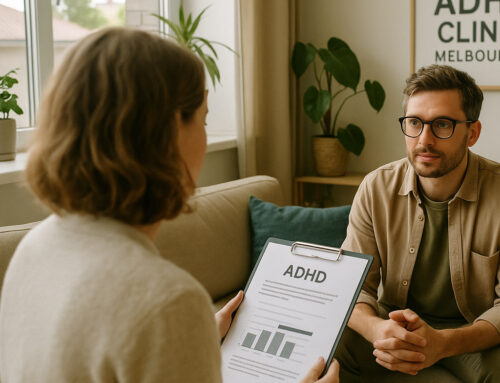How Is ADHD Testing Conducted?
There is no single test to diagnose ADHD in children. Instead, ADHD testing involves gathering information from various sources, including parents, teachers, and caregivers. This helps build a complete picture of the child’s behaviour across different settings, such as home, school, and social environments.
Testing typically includes:
- Detailed interviews with parents to understand the child’s behaviour and history.
- Behavioural questionnaires or rating scales completed by parents, teachers, and caregivers.
- A physical exam to rule out other medical conditions that may affect behaviour.
- A review of the child’s academic records and learning patterns.

What Symptoms Are Evaluated During Testing?
ADHD testing evaluates symptoms of inattention, hyperactivity, and impulsivity. Symptoms must be present in multiple settings and impact the child’s ability to function.
Common signs include:
- Difficulty staying focused or following instructions.
- Excessive movement or fidgeting in inappropriate situations.
- Interrupting others during conversations or activities.
- Problems with organisation and completing tasks.
If your child exhibits these behaviours consistently for at least six months, it may indicate ADHD.
Guidelines for ADHD Testing in Children
Healthcare professionals follow specific criteria to diagnose ADHD in children:
- Symptoms start before the child is 12 years old.
- Six or more symptoms of inattention, hyperactivity, or impulsivity are identified in children aged 4–16.
- Symptoms occur in at least two settings, such as home and school.
- Symptoms interfere with daily functioning, such as school performance or social interactions.
How Can Parents Prepare for ADHD Testing?
Parents play a critical role in ADHD testing by providing insights into their child’s behaviour and history. Here’s how you can prepare:
- Keep a record of your child’s behaviour, including when symptoms started and their impact on daily life.
- Gather information about your child’s development, medical history, and family history of ADHD or other conditions.
- Communicate with your child’s teacher to understand how symptoms affect their performance and behaviour at school.
This information helps healthcare providers determine whether your child meets the criteria for ADHD.
What Happens After Testing?
If your child is diagnosed with ADHD, the next step is creating a management plan. This may include behavioural therapy, educational interventions,
and, in some cases, medication. Parents and teachers will collaborate to support the child in managing symptoms and achieving success.
Early diagnosis and intervention can significantly improve outcomes for children with ADHD.
Schedule ADHD testing today to take the first step toward understanding your child’s needs.



